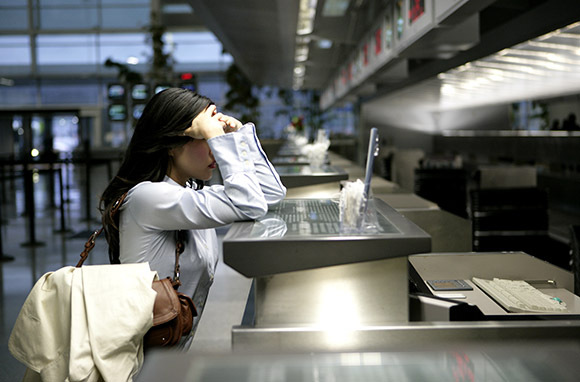
The marketplace and government regulations sort out many of the issues consumers have with travel providers. But big gaps remain. Consumers still face barriers to fair and equitable treatment when they buy and use travel services. Corporations enjoy a hugely disproportionate power in what are supposed to be “negotiations” on terms of service. And the government often fails to police abuses as quickly and effectively as consumers might want.
Sadly, there are no easy work-around solutions for consumers. Instead, travelers must wait for some combination of voluntary industry action, government regulation, consumer activism, and litigation. Ten worries in particular pervade the travel marketplace, and you should certainly be aware of the problems they raise. Here are the 10 most critical consumer-facing issues in the industry.
Image Gallery
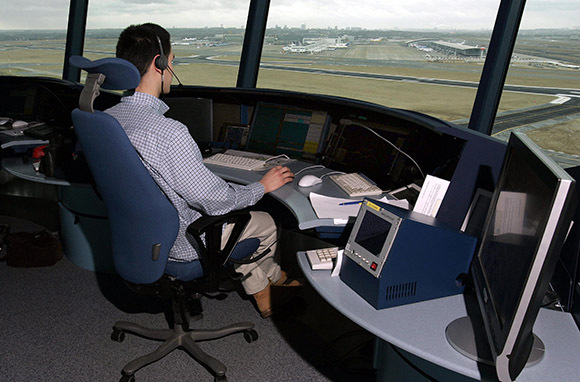
Outmoded Air-Traffic Control
Winter 2013/14 demonstrated the fact that air travel is still not a sure thing. The eastern half of the U.S. suffered delays and cancellations due to weather problems—many of which could have been avoided with a more accurate and dependable all-weather air-traffic control (ATC) system. Even absent really bad weather, runway-capacity limitations cause year-round problems at major airports. And these problems will only get worse unless the ATC system's capacity can grow along with air traffic. Moreover, if you think things are bad here in North America, the Europeans face the same technical challenges, plus extremely nationalistic forces that are resisting even the most obvious multinational ATC management.
The answer to this issue is the Federal Aviation Administration's (FAA) NextGen satellite-based navigation/communication system. It relies on off-the-shelf technology and has been proven to do the job. The problem? Partly, it's funding. Although the FAA has spent a lot of money on ground stations, many airlines are balking, saying the government should foot the bill for the necessary equipment to be installed on airplanes, too. Lack of coherent management is also a big problem.
The good news is that we have the technology to help fix the problems. What's needed is the will—and, of course, the money.

Outmoded Air-Traffic Control
Winter 2013/14 demonstrated the fact that air travel is still not a sure thing. The eastern half of the U.S. suffered delays and cancellations due to weather problems—many of which could have been avoided with a more accurate and dependable all-weather air-traffic control (ATC) system. Even absent really bad weather, runway-capacity limitations cause year-round problems at major airports. And these problems will only get worse unless the ATC system's capacity can grow along with air traffic. Moreover, if you think things are bad here in North America, the Europeans face the same technical challenges, plus extremely nationalistic forces that are resisting even the most obvious multinational ATC management.
The answer to this issue is the Federal Aviation Administration's (FAA) NextGen satellite-based navigation/communication system. It relies on off-the-shelf technology and has been proven to do the job. The problem? Partly, it's funding. Although the FAA has spent a lot of money on ground stations, many airlines are balking, saying the government should foot the bill for the necessary equipment to be installed on airplanes, too. Lack of coherent management is also a big problem.
The good news is that we have the technology to help fix the problems. What's needed is the will—and, of course, the money.

Hidden Mandatory Fees
As we've postulated many times before, any mandatory fee that a supplier pockets is really an inherent part of the price and should be included in the initially featured rate. Otherwise, mandatory fees are scams. Department of Transportation (DOT) rules in the U.S. and comparable rules in Canada and most of Europe require that airlines post all-inclusive prices from the first display. But hotels, rental-car companies, and other suppliers still routinely omit mandatory fees from featured prices, and, at least so far, the recent Federal Trade Commission's (FTC) action with large hotel chains has improved disclosure but not ended the scam.
As far as I can tell, adding mandatory fees to lowball featured prices violates at least some truth-in-advertising laws, and the FTC has declared the practice, which it calls "drip pricing," deceptive. But enforcement has been, to put it mildly, slow at the federal level and nonexistent at state levels. The time has clearly come for the FTC and state attorneys general to start enforcing their own laws and rules.
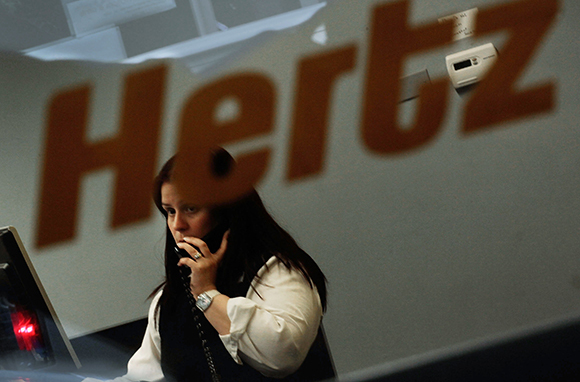
Hotel and Rental-Car Overbooking
For almost four decades, the DOT has required airlines to offer specific compensation to travelers bumped as a result of overbooking, and many other governments have followed suit. But I have been unable to find any state or local laws specifying any overbooking compensation requirements for hotel accommodations or rental cars. "Walking" oversold hotel arrivals to another presumably equivalent hotel is an industry practice that is not always followed, and rental-car companies don't even have a standard industry practice.
Overbooking is legal, so you need recourse when a supplier can't fulfill its legal commitment to provide you with a room or a car. Ideally, the major trade associations should develop national "customer bill of rights" procedures, including specific compensation. If they don't, presumably, legal action by states will be necessary.
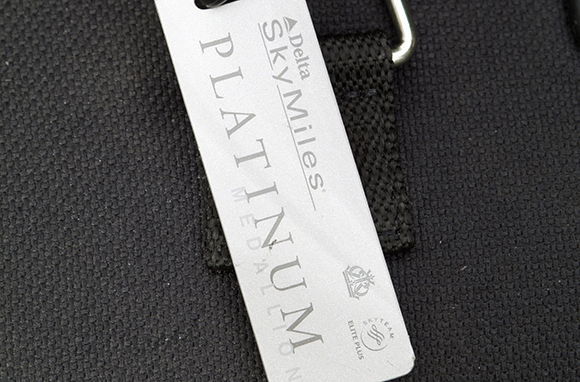
Frequent-Flyer Abuses
You'd be hard-pressed to find a corporate-consumer arrangement as one-sided as a big airline's frequent-flyer program. The airlines hold all the cards: They actually own what are supposedly your miles, and they can be completely cavalier about how they allocate or fail to allocate award seats. Yes, you agreed to this one-sided arrangement when you joined, but the situation has reached the point where it entails an unacceptable degree of deception.
Although airlines say they own your miles, they also aggressively sell miles. The word "sell" strongly implies actual change of ownership, rather than some ill-defined right to use. In their promotions, airlines repeatedly gush over how, typically, 25,000 miles is enough for a free seat, even though the only available free seats at the lowest mileage level may be from Buffalo to Pittsburgh.
When airlines advertise sale fares, the DOT requires that the airlines offer a reasonable number of seats at those prices. The DOT should apply a similar requirement to award seats. And maybe the ownership issue can be addressed by civil litigation.
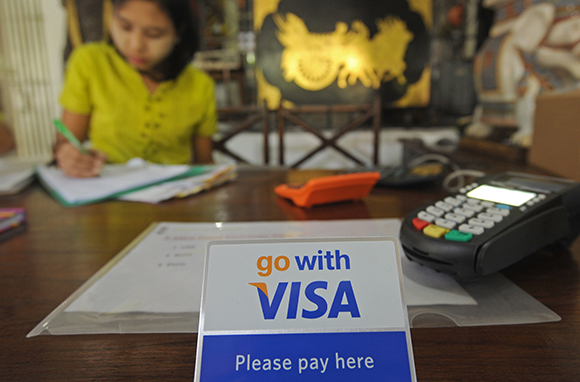
Holes in Credit Card Protections
The ability to challenge a credit card charge for a service not performed is one of your best assets in dealing with suppliers that fail to deliver. That right is established in both federal and state laws. However, those laws contain some mostly indefensible loopholes that limit your rights to challenge a supplier. In some cases, you must notify the issuing bank of a billing error within 60 days of the date on which the item first appears on your card statement. Additionally, some claims are limited to purchases from merchants within 100 miles of your home.
Obviously, these and other limits specifically hinder recourse on travel purchases. As travelers, we often pay in full more than 60 days in advance for an air ticket, cruise, tour, or vacation rental, and we often buy goods and services when we're more than 100 miles from home. I see no sound reason for either limitation. We should urge our elected representative to close those gaping loopholes.
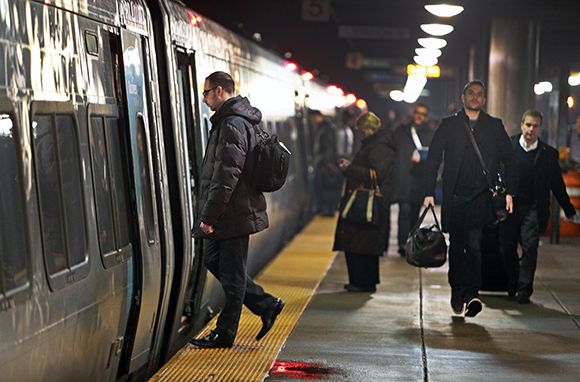
Inefficient U.S. Passenger-Rail System
While Europe and Asia announce some sort of new high-speed rail link or other major improvement every few months, the U.S. bumbles along with an inefficient and underfunded passenger-rail system that isn't even keeping up with current needs, let alone building for the future. Politics is at the root of the fundamental problem: The current route network and service patterns were developed to attract sufficient political support, rather than to meet transportation realities, and the service depends on uncertain and insufficient yearly appropriations.
It's possible to describe a rational rail system for the U.S., both operationally and financially. A few local-level organizations—most notably the Midwest High Speed Rail Association and the nine states it covers—are actively pursuing sensible incremental improvements, but nobody seems to want to step up to the challenge nationally. As far as I can tell, Canada faces similar problems.

Contracts of Adhesion
Most binding contracts between you and a travel supplier—exemplified by airline contracts of carriage—include many pages of detailed fine print to which you must agree, in toto, when you buy the service. The fine print typically imposes very strict payment requirements on you but leaves lots of loopholes through which the supplier can escape its true responsibilities and impose barriers on your ability to obtain legal resources. There is no opportunity to negotiate on specific terms, including failure to perform the service, before you sign. These one-sided, nonnegotiated agreements are called contracts of adhesion and they're very common in the travel industry.
This is a problem easier to state than to solve. Courts have been inconsistent when ruling on whether such contracts are enforceable. Short of overall tort reform (a project dear to the hearts of many but unlikely to go anywhere in the foreseeable future), it's hard to come up with any sensible consumer advice other than to be careful. That's not very helpful, and contracts of adhesion remain the source of a lot of consumer vexation.
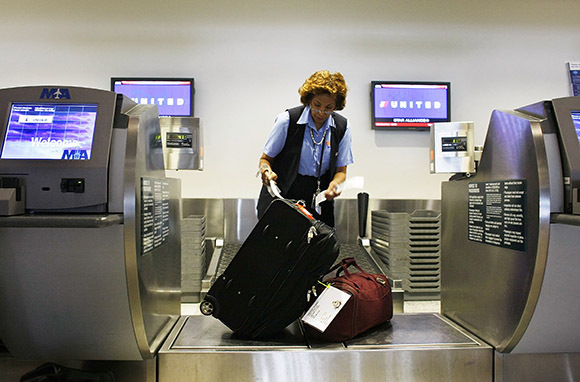
Excessive Optional Airline Fees
As if mandatory fees weren't bad enough, consumer activists are also targeting "optional" airline fees, covering specific services such as checked baggage and in-flight meals, which are far in excess of base prices. Although the DOT has no authority to regulate domestic airline fees, some consumer activists have proposed that any fees in excess of 200 percent of the original cost of the service or product are inherently unreasonable. In support of this claim, they've shown that several such fees, including those for handling checked baggage, are clearly in excess of even that lenient limit. Activist Donald Pevsner notes that the DOT retains authority over fees on international tickets, and that the international ticket change fee of up to $400 is clearly unreasonable compared with the actual cost of less than $50.
Historically, consumers as well as the industry are loath to advocate reregulation. Airlines are quick to whine about any pro-consumer DOT ruling as "reregulation," as are many free-market advocates. However, all recent consumer protection rules have been in response to obvious and egregious consumer abuses, most notably eight-hour tarmac delays with no food, water, or operating toilet facilities. In these cases, the DOT gave airlines more than ample time to correct their abuses before imposing rules. But when airlines fail to correct obvious abuses, including grossly excessive fees, consumers start to call for more rules. Maybe this is another case.

Consistent Price Comparisons
Airline-by-airline and hotel-by-hotel fee differences make realistic fare comparisons difficult. An ideal search system would allow you to enter something like, "I want to fly round-trip from Chelm to Kampen and back, leaving on May 2, and check one bag, reserve my seat in advance, and have an in-flight snack," and the search engine would return the total you'd pay (fare plus applicable fees) as the first screen tabulation. Today, search engines typically present the basic ticket prices before fees, and notify you of the fees separately.
This is one issue that the marketplace might solve within a reasonable time frame. Certainly, the first search engine to mount such a system would gain lots of business.
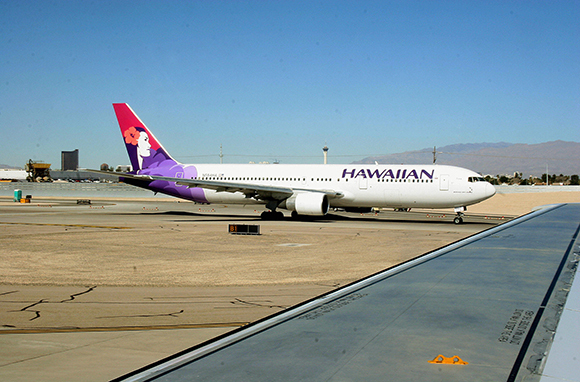
Survival Of Independent Airlines
With the latest big airline merger, just four giant carriers—American, Delta, Southwest, and United—control more than 70 percent of the total domestic market. Industry mavens are already widely speculating about which giant airlines will try to acquire the remaining independents, especially Alaska, Hawaiian, JetBlue, and—if it shows it can make money—Virgin America.
Clearly, survival of these airlines as independents is crucial to consumers. Independent carriers provide unique products and offer pricing formulas that don't mimic the giants. And once an acquiring giant airline gets ahold of an independent, it generally completely destroys that smaller airline's unique features, just as US Airways ruined PSA and American ruined Reno Air. But, of course, the idea behind these acquisitions isn't to preserve a small airline's products and pricing, it's to eliminate pesky competition—which is why it might happen absent more effective oversight than the government exercised in the American-US Airways merger.
More From Smartertravel:
We hand-pick everything we recommend and select items through testing and reviews. Some products are sent to us free of charge with no incentive to offer a favorable review. We offer our unbiased opinions and do not accept compensation to review products. All items are in stock and prices are accurate at the time of publication. If you buy something through our links, we may earn a commission.
Related
Top Fares From
Today's Top Travel Deals
Brought to you by ShermansTravel
France: 8-Night Paris, Avignon & Nice...
Infinity Worldwide Vacations
 vacation
$2880+
vacation
$2880+
Poconos: 3 Nts in Garden of...
ResortsAndLodges.com
 hotel
$305+
hotel
$305+
7-Nt Canada & New England Cruise,...
Princess Cruises
 cruise
$839+
cruise
$839+



